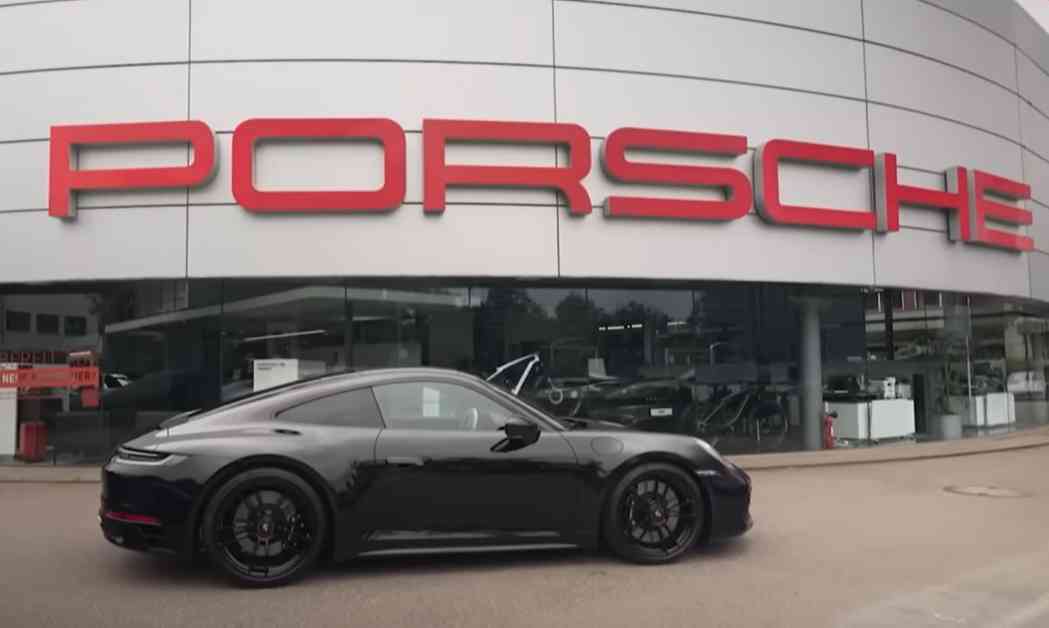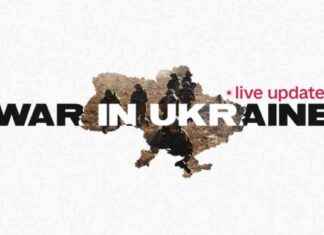European Sanctions Fail to Stop Porsche and Weapon-Making Machinery Flow to Moscow
European sanctions aimed at restricting the flow of Porsches and industrial equipment to Moscow have proven ineffective, giving rise to a shadow economy where smugglers openly flaunt their crimes on social media while European manufacturers turn a blind eye when caught in the act.
An eye-opening investigation by ARTE, the Franco-German TV network, has pulled back the curtain on this sanctions-busting industry, revealing how European corporations publicly stand in solidarity with Ukraine while their products directly contribute to Russia’s military capabilities. The investigation uncovered two distinct smuggling networks operating in plain sight: a stream of luxury vehicles passing through Türkiye and industrial equipment, crucial for missile and tank production, being channeled through Central Asian intermediaries.
The Audacious Smuggling Operation of Anton Ilievsky
One of the most brazen examples of sanctions violations comes from Russian businessman Anton Ilievsky, who shamelessly showcases his illicit exports of luxury cars to Russia on platforms like YouTube and Telegram. In his videos, Ilievsky proudly lists high-end vehicles, including BMW and Porsche models, that he has successfully transported to Moscow despite sanctions prohibiting the sale of cars exceeding €50,000.
ARTE meticulously tracked several of these vehicles from German showrooms to their final destinations in Moscow, providing indisputable evidence of the smuggling operation. The sheer audacity of Ilievsky’s actions is evident in his open flaunting of luxury car exports, even as German authorities occasionally crack down on similar schemes.
While Ilievsky continues his provocations, German luxury vehicles that were once directly exported to Russia have seen a significant decline, with neighboring countries experiencing suspicious spikes in imports. This circumvention strategy has become so entrenched that trade statistics in the region now serve as glaring indicators of sanctions evasion.
Italian Manufacturer FPT Industrie Flouts Sanctions with Industrial Machinery
In a more alarming revelation, the investigation exposed Italian manufacturer FPT Industrie for openly displaying banned industrial machinery at a Moscow trade show supported by the Russian Ministry of Industry. The company’s CNC milling machines, designed for metal component processing, have direct applications in military production, making their export to Russia a clear violation of sanctions.
Despite FPT Industrie’s attempts to downplay their involvement at the trade show, social media posts from company representatives inviting visitors to their booth revealed a blatant disregard for international restrictions. Photos from the exhibition showcased the company’s prohibited machines, weighing up to 42 tons and costing millions, which are crucial for Russia’s military industrial complex.
Commercial records further confirmed the illegal exports, with detailed documentation tracing the path of prohibited machinery from Italy to Russia through Kazakhstan. Despite repeated attempts to seek clarification from FPT Industrie, the company remained silent on the matter, underscoring the challenges of enforcing sanctions against corporate entities.
German Manufacturer Spinner’s Denial Unraveled by ARTE Investigation
The most damning evidence of sanctions evasion came from German manufacturer Spinner and its high-precision machine tool, the PD42. A meticulous examination of customs records revealed a glaring contradiction in Spinner’s claims, as the same machine exported to Uzbekistan was later found in Moscow, directly implicating the company in sanctions violations.
When confronted with this irrefutable evidence, Spinner CEO Nicolaus Spinner vehemently denied any wrongdoing, asserting that the machine had never left Uzbekistan. However, subsequent investigations unearthed discrepancies in the company’s documentation, pointing towards potential document falsification to evade sanctions.
The investigation highlighted the systemic weaknesses in the current sanctions regime, emphasizing the need for proactive verification and thorough monitoring of suspicious trade patterns. While statistical anomalies in export data provide clear indicators of circumvention, enforcement efforts often fall short, allowing companies to exploit regulatory loopholes for financial gain.
The Unresolved Question of Europe’s Sanctions Enforcement
As the investigation delves deeper into the intricate web of sanctions evasion, one unsettling question lingers: Is Europe’s sanctions regime merely a symbolic gesture without the robust enforcement mechanisms necessary to cripple Russia’s military capabilities? The glaring inconsistencies in sanctions compliance and the prevalence of corporate circumvention underscore the urgency for a paradigm shift in monitoring and enforcement strategies.
From luxury car smugglers to industrial machinery exporters, the investigation paints a stark picture of a sanctions-busting industry that thrives on exploitation and deceit. As long as European manufacturers prioritize profits over compliance, the shadow economy that bolsters Russia’s war machine will continue to flourish, undermining the very sanctions meant to curb its expansion.
In the face of mounting evidence and undeniable challenges, the need for stringent oversight and unwavering commitment to sanctions enforcement has never been more critical. Only through collective vigilance and decisive action can Europe hope to contain the insidious flow of Porsches and weapon-making machinery to Moscow, safeguarding regional stability and upholding the principles of international law.

















